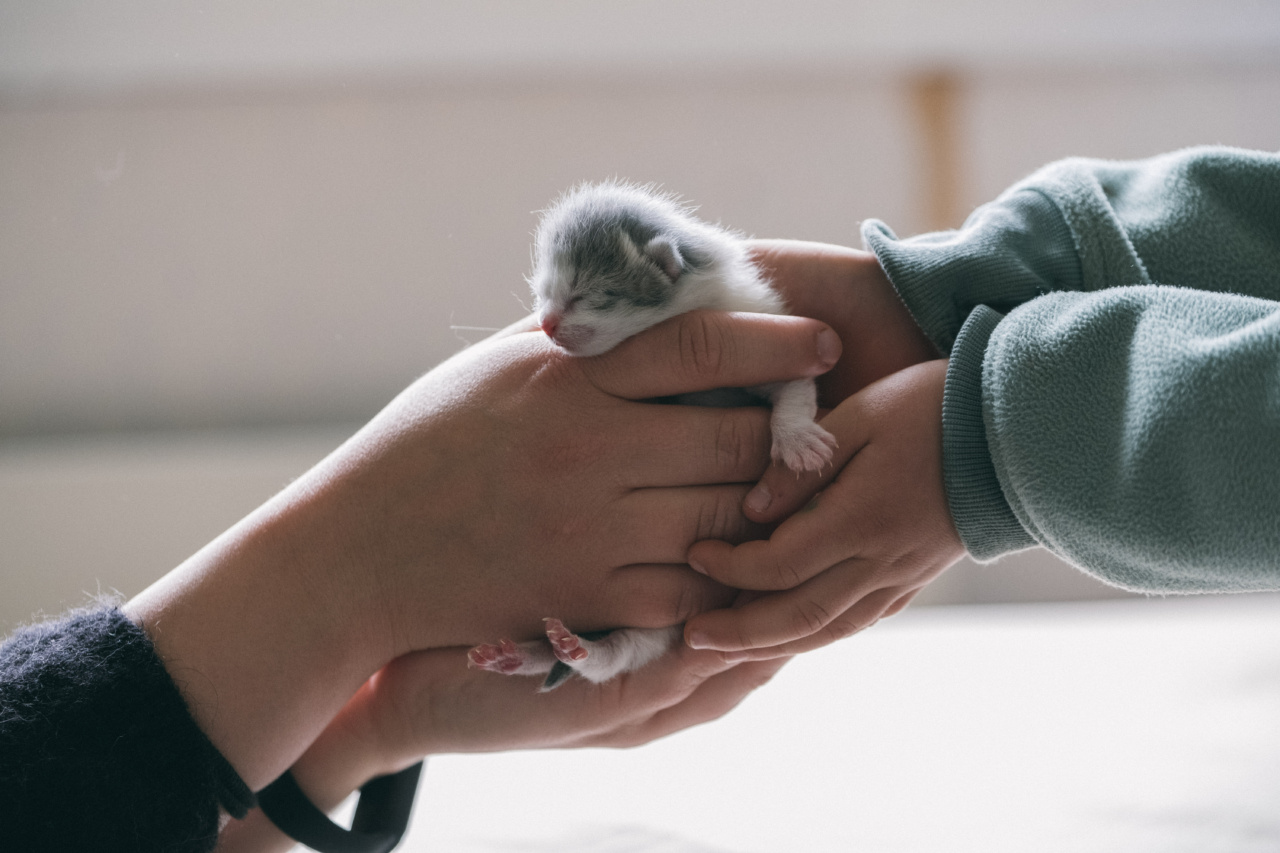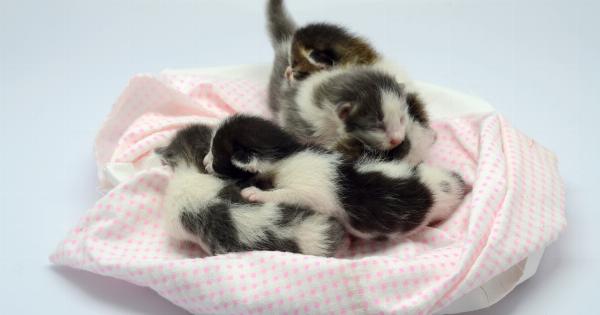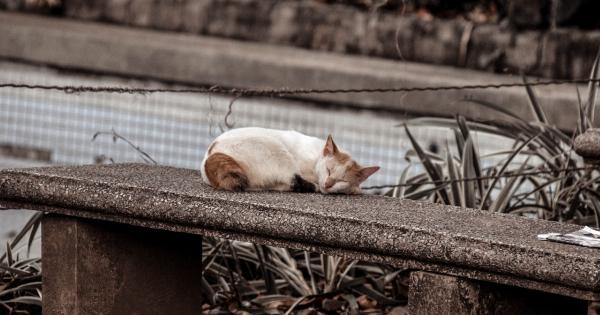Rescuing orphaned newborn kittens can be a challenging yet rewarding experience. These fragile creatures require specialized care and attention to ensure their well-being and proper development.
Whether you encounter a litter of kittens abandoned by their mother or come across a lone kitten in need, this guide will provide you with valuable tips and tricks to increase their chances of survival and assist you in their rescue efforts.
1. Assess the Situation
Before jumping into action, take a moment to carefully evaluate the situation. Observe the kittens from a distance to determine if they are truly orphaned. The mother might be nearby, occasionally leaving to gather food or relocate the nest.
If you confirm that the kittens are indeed orphaned, assess their overall health status and age. The kittens’ eyes should be closed if they are newborns, while slightly older kittens would have their eyes open.
Additionally, listen for any signs of respiratory distress or weakness.
2. Gather the Necessary Supplies
Prior to rescuing the orphaned kittens, collect all the necessary supplies. This will ensure you are fully prepared to provide the care they need upon arrival.
Some essential supplies for rescuing orphaned newborn kittens include:.
- A well-ventilated, warm box or carrier with soft bedding
- A heating pad or hot water bottle to regulate their body temperature (ensure it has a cover and is set on low heat or wrapped in a towel to prevent burns)
- A small pet scale to monitor their weight gain
- Feline milk replacer formulated specifically for kittens (avoid using cow’s milk as it can cause digestive issues)
- Feeding bottles or syringes with small nipples that mimic the mother’s teats
- Soft, damp cloth or cotton balls for facilitating elimination
- A kitten-safe litter box with unscented non-clumping litter
- Toys and items for stimulation
3. Create a Warm and Safe Environment
Newborn kittens are unable to regulate their body temperature effectively, making it crucial to provide them with a warm environment. Create a cozy nest using a warm box or carrier lined with soft bedding.
Place a heating pad or hot water bottle wrapped in a towel beneath the bedding to maintain an appropriate temperature (around 90-95°F or 32-35°C) and prevent hypothermia.
Remember to position the heating source in such a way that the kittens can move away from it if they become too warm. This allows them to self-regulate their body temperature.
Additionally, ensure the rescue area is safe and free from hazards like drafts, loud noises, other pets, or potential dangers that may harm the vulnerable kittens.
4. Feeding Orphaned Newborn Kittens
Proper nutrition is crucial for the healthy development of orphaned kittens. Before attempting to feed them, it is essential to ensure they are warm as their bodily functions cannot begin if they are too cold.
Feed the kittens using a bottle or syringe to mimic the action of nursing. Hold them in a natural position, allowing them to lie on their stomachs with their head slightly raised. Never feed the kittens on their backs, as they may choke.
Prepare a fresh batch of feline milk replacer according to the manufacturer’s instructions. Make sure the milk is warm, but never scalding hot. Test the temperature by applying a drop or two on your inner wrist, which is more sensitive to heat.
Offer small, frequent feedings to avoid overfeeding and the risk of aspiration. Newborn kittens typically need to be fed every two to three hours. As they grow older, you can gradually increase the time between feedings.
Observe the kittens’ behavior during feeding. They should actively suckle and swallow without signs of distress. If they struggle or refuse to eat, consult a veterinarian for advice.
5. Stimulate Elimination
Newborn kittens rely on their mother to facilitate elimination by licking their bottoms. Since you are serving as their caretaker, it is crucial to help stimulate their elimination reflexes manually.
After each feeding, use a soft, damp cloth or cotton ball to gently massage the kittens’ anal and genital areas. This mimics the mother’s tongue and encourages them to eliminate waste.
Be patient, as it may take a few attempts for them to respond.
Continue this process until the kittens begin eliminating on their own, usually around three to four weeks of age when they start using a litter box.
6. Monitor Weight Gain and Development
Weigh the kittens regularly to track their growth and ensure they are gaining weight properly. A small pet scale specifically designed for weighing kittens is the most accurate tool for this task.
Healthy kittens should gain weight consistently. Observe their body condition, such as an increase in size and firmness of their bellies, as this indicates adequate milk intake.
Consult a veterinarian if you notice any sudden weight loss or other concerns.
In addition to weight, monitor other developmental milestones like the kittens’ ability to crawl, open their eyes, or start walking. Keep a record of their progress to detect any potential issues and seek veterinary assistance if necessary.
7. Socialization and Stimulation
Early socialization is vital for orphaned kittens, as it helps them develop into well-adjusted and sociable adult cats. Around two to three weeks of age, the kittens’ eyes will begin opening, granting them limited vision.
Expose the kittens to gentle human interaction, ensuring they associate it with positive experiences. Speak to them softly, stroke them gently, and allow them to smell your scent.
This will help build their trust and prevent fear or aggression towards humans.
Provide them with toys suitable for their age, such as small plush toys or soft balls. Engage in interactive play sessions to stimulate their physical and mental development.
Additionally, create a safe and stimulating environment for the kittens by introducing different textures, sounds, and objects of varying shapes and sizes.
8. Transitioning to Solid Food and Litter Box Training
As the kittens reach around three to four weeks of age, they gradually transition from a milk-only diet to consuming solid food. This is a critical phase where the kittens begin exploring their environment and mimicking their mother’s behaviors.
Introduce a high-quality, veterinarian-recommended kitten food mixed with warm water or kitten milk replacer. Mash the food into a smooth consistency and offer it to the kittens on a shallow plate or saucer.
Initially, they may only nibble or play with the food, but as they grow more accustomed, they will start eating solid food independently. Continue providing the mother’s milk replacer until they fully transition to solid food.
Simultaneously, you can start introducing the kittens to the concept of using a litter box. Place a small litter box with unscented non-clumping litter in their living area.
Gently guide the kittens’ paws in a scratching motion on the litter to encourage them to investigate.
Once they start using the litter box, keep it clean by removing waste regularly and gradually introduce a larger litter box as the kittens grow.
9. Veterinary Care and Vaccinations
It is crucial to prioritize the health of rescued orphaned kittens by seeking professional veterinary care. A veterinarian will provide a thorough examination, offer appropriate vaccinations, deworming, and check for any underlying medical conditions.
They will guide you on an appropriate feeding schedule and advise on the kittens’ overall well-being. Veterinary care also includes spaying or neutering the kittens when they reach the appropriate age to prevent overpopulation.
10. Finding Forever Homes
As the kittens grow and become strong, healthy individuals, it’s time to start planning for their future. If you cannot provide a forever home for all the kittens, consider finding suitable adoptive families.
Contact local animal rescue organizations or no-kill shelters to inquire about their adoption processes. Create appealing profiles for the kittens, including adorable photographs and descriptions of their personalities, to attract potential adopters.
Screen prospective adopters thoroughly to ensure the kittens are placed in loving, responsible homes.
Ask questions about their experience with pets, their living situation, and whether they are willing to provide the necessary care the kittens require.
Remember, the goal is to find a safe and loving forever home where the kittens can grow and thrive for years to come.
In Summary
Rescuing orphaned newborn kittens can be an incredibly rewarding experience.
By assessing the situation, providing a warm and safe environment, ensuring proper nutrition and elimination, monitoring weight gain and development, and offering socialization and stimulation, you can significantly improve their chances of survival and promote their healthy growth.
Remember, if you ever feel overwhelmed or encounter any difficulties, do not hesitate to seek advice from veterinarians or local animal rescue organizations who can provide further guidance and support in your mission to rescue and rehabilitate these precious little creatures.






























